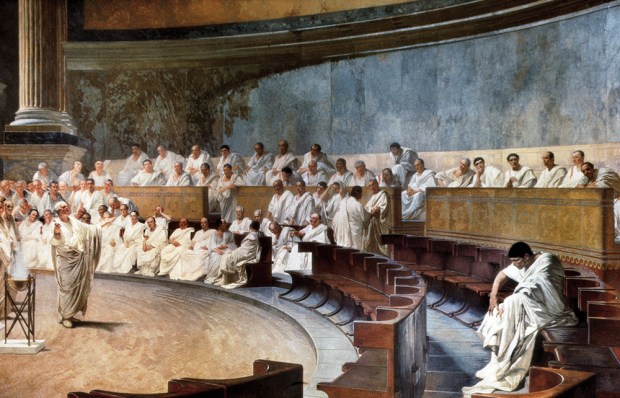Since the Somerset Levels are a flood plain, nature will flood it. Romans had no problems with that.
Much of Rome was low-lying and pretty marshy. The main drain — the cloaca maxima, only incidentally a sewer as well — was constructed early in Rome’s history to make the forum inhabitable. The 250-mile-long Tiber flooded every four or five years, with a big one every 25 years or so, not helped if water backed up from the sea.
Already a subscriber? Log in
Subscribe for just $2 a week
Try a month of The Spectator Australia absolutely free and without commitment. Not only that but – if you choose to continue – you’ll pay just $2 a week for your first year.
- Unlimited access to spectator.com.au and app
- The weekly edition on the Spectator Australia app
- Spectator podcasts and newsletters
- Full access to spectator.co.uk
Unlock this article
On 6 March in Middle Temple Hall, Ralph Kirshbaum will play a charity concert in memory of Erich Segal to raise funds for Classics for All. Details at www.classicsforall.org.uk
You might disagree with half of it, but you’ll enjoy reading all of it. Try your first month for free, then just $2 a week for the remainder of your first year.












Comments
Don't miss out
Join the conversation with other Spectator Australia readers. Subscribe to leave a comment.
SUBSCRIBEAlready a subscriber? Log in